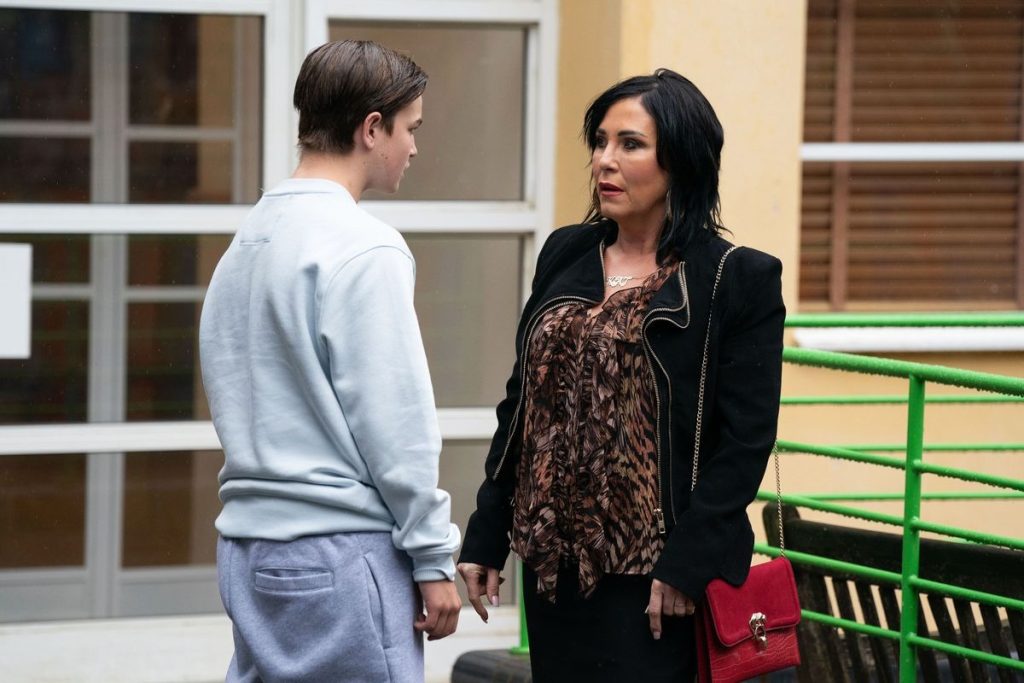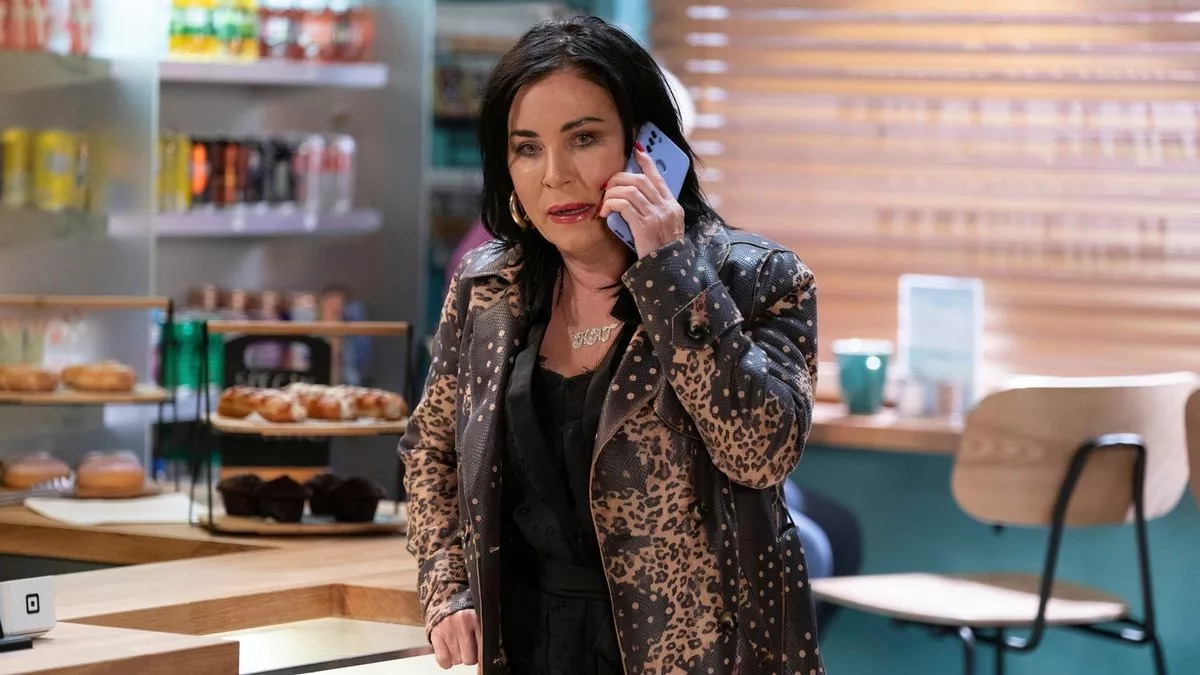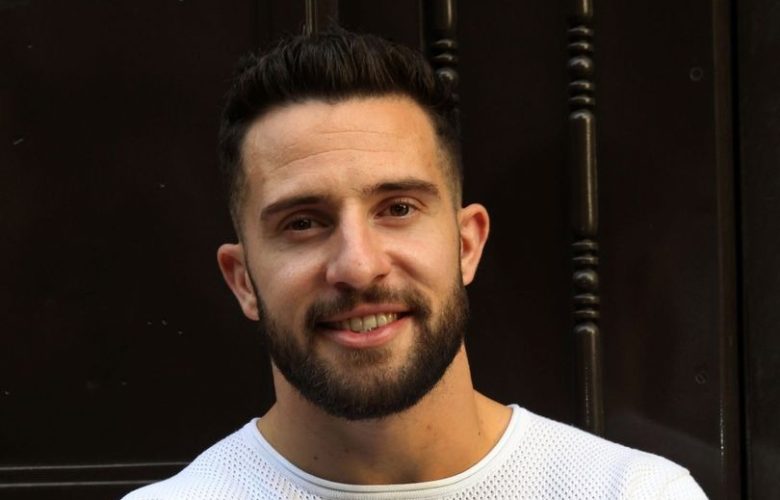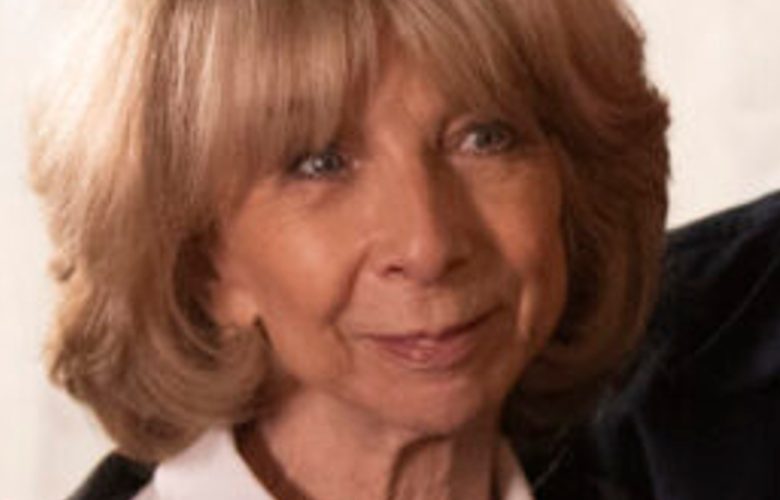Tommy has recently shown Kat Slater his violent streak in dramatic EastEnders scenes. Off-screen, Kat’s torment represents a frequently overlooked and stigmatised issue
One in 10 parents in the UK population have been affected by the same abuse Kat Slater is currently enduring at the hands of her own son Tommy Moon – and survivors are calling for change.
The long-standing EastEnders legend portrayed by Jessie Wallace has been thrown into another nightmare as her son Tommy Moon (played by Sonny Kendall) began to display troubling behaviour, lashing out against his mother both verbally and physically. But in scenes aired this Wednesday (October 9), Kat’s torment reached new and sickening levels.
Viewers of the BBC One soap were left on edge as they saw Tommy punch his own mother in a brutal display. But, unlike fans of the London-based programme, multiple parents off-screen are unable to escape the abuse (verbal, physical, financial and even sexual) their own children inflict on them behind closed doors.

Tommy Moon has assaulted his own mother Kat Slater in EastEnders – a brutal reality for one in 10 parents in the UK (Image: BBC/Jack Barnes/Kieron McCarron)
‘One parent every 19 days’
Tommy’s behaviour began to spiral out of control during the summer, as the teen tried to play matchmaker between his mother Kat and Phil Mitchell (Steve McFadden), whom he has grown up to consider a role model. However, after being unable to fix their marriage, Tommy has become increasingly volatile, resulting in him victimising his mother.
Speaking about the storyline upon its announcement, Chris Clenshaw, Executive Producer, said: “Kat is well-known in Albert Square for her no-nonsense attitude and fiery temper, but this storyline will explore how Tommy manipulates Kat’s unequivocal love for her son to exert his anger and elicit control.”
“Jessie [Wallace] and Sonny’s [Kendall] performances have thoughtfully portrayed the complex realities of child to parent abuse with compassion and understanding, and the storyline will demonstrate how Tommy’s behaviour effects their relationship and the wider Slater-Moon family as a whole.”
To ensure the accuracy of the storyline, EastEnders has worked closely with charities Family Based Solutions and PEGS (Parental Education Growth Support), both of which have worked to support victims of child-to-parent abuse (CPA).
During a chat with The Mirror about the storyline, Michelle John, Founding Director of PEGS who has had personal experience with child-to-parent abuse, has explained that CPA affects one in 10 parents, which equates to 3% of the UK population. Abusive acts, committed by children of any age, thrown under the “CPA” umbrella term can range from coercion and control to sexual abuse.
“For example”, Michelle told us, “17% of those that PEGS support, their child is sexually abusing their parent, which is a shocking statistic, but sadly, one that is, is the reality for so many families. We’re talking about all forms of behaviour that you would perhaps see within an intimate partner relationship.” And much like any other intimate partnership, the abuse can have devastating consequences.
“We further know through research again, but one parent every 19 days is killed in England and Wales at the hands of their child – with the youngest child just being 11 years old”, Michelle added, before referring to a legal case which has rapidly unfolded this year in Old Bailey.
“There’s currently a young person on trial at the Old Bailey where she attempted to kill her mum. She’s the youngest person ever to appear before the Old Bailey. She was 12 at the time she attempted to kill her mum. She’s 13 now she’s due for sentencing, and she’s pleaded guilty last month, and I think she’s due for sentencing in either November or the start of December.”
A complex range of causes
Walford residents and viewers may explain Tommy’s violent behaviour away as the result of Phil Mitchell’s influence, after the Albert Square tough man gained a reputation for his public brawls and penchant for brutality. But for Michelle, causes for a child’s violent acts are difficult to find.
“What we know is that under 50% of those that we support have experienced intimate partner abuse”, she pointed out. “We’re asked time and time again, what causes this? The reality is, there is no one answer for that. It’s a form of abuse that is incredibly complex.”
Many families, in Michelle’s words, may display identifiable risk factors, which include previous domestic abuse, poor mental health, substance misuse or bereavement. “But equally”, she continued, “we do support parents where there is no identifiable cause and the reality is, isn’t it that these families are living in trauma, and that’s going to have an impact on all of that family’s mental health to some degree.”
To make matters worse, parents rarely find the help they need outside of their homes, due to CPA becoming a heavily stigmatised phenomenon. “Society already is the worst critic of a parent”, Michelle suggested. “Parents are judged whether that’s how we choose to have our children or how we feed our children. There’s always blame there.”
And the CPA stigma often leads parents to be shamed for their children’s behaviour, despite becoming victims of it. “Those that we support, they’re incredible. They want their child to have help and support, and they’re their children’s biggest advocate. What they don’t want is the behaviour. But quite often, when they approach services, they’re told, ‘Go on a parenting course, it must be your fault. What have you exposed that child to?'”
“This just further adds to that stigma and the blame that parents are holding within themselves, that then creates further isolation, and people aren’t going to come forward at that point.”
New ways to cope
But while Michelle highlights behaviours that could leave a parent suffering from CPA stranded and without help, one considerable change needs to come from the government itself as child-to-parent abuse has yet to be fully defined. “Within the domestic abuse act, child to parent abuse is recognised if the child is aged 16 or above, what is not recognized necessarily and certainly no legal definition is for those under the age of 16”, Michelle commented.
“One of the issues, or biggest barriers at the moment, is that there’s a postcode lottery across the UK, and certainly wider and so by having an agreed definition, that means that it’s a starting point to accept that this abuse is abuse, and it is happening to ensure that there’s support there, both for the families and also for professionals, and hopefully that will then escalate and make change.”
But while charities like PEGS continue to campaign for a solution, CPA victims are encouraged to not live in silence. According to Michelle, society in general needs to “normalise having those conversations, allow space for the parent or caregiver to express what they feel they want to.”
She then warned: “Don’t talk negatively of their child, because ultimately, it is their child, they love them and they want help and support for them. Think about having those conversations if it’s safe to do so, to suggest places such as PEGS or other services that parents or caregivers can go to access support.”
“If you’re an employer, for example, we have an employer covenant that’s free for any employer in the UK that can sign up to get help, for training, for HR policy and support to really ensure that victims have the best opportunity to reach out and to receive support. It is important that we have a process and framework for them, but we also need the government to actually have a definition of this form of abuse.”
As Kat Slater’s storyline unfolds on our screens, PEGS’ fight continues and the charity will hold its first International Child To Parent Abuse conference this Monday, October 14.



